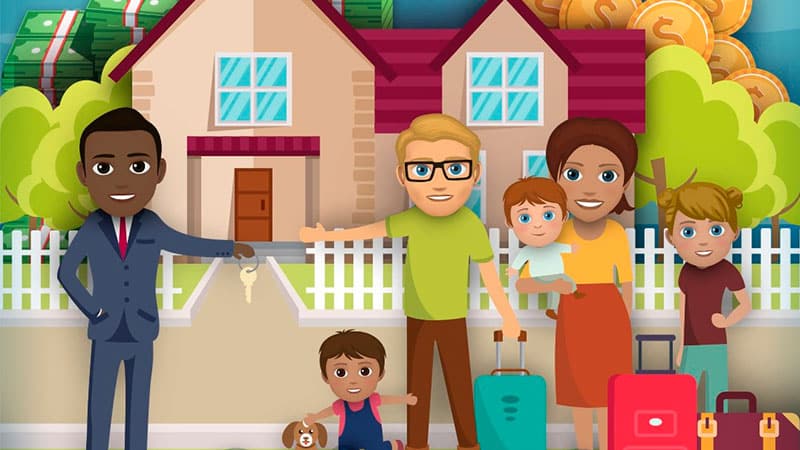Baldur’s Gate 3: The Moral Dilemma of Rapturing with Naoise

Baldur’s Gate 3, the highly anticipated role-playing video game developed by Larian Studios, has taken players on a thrilling journey through the dark and mysterious world of the Forgotten Realms. One of the game’s most intriguing and morally challenging moments occurs when players are faced with a crucial decision: should they agree to rapture with Naoise? This pivotal moment raises questions about morality, consequences, and the impact of player choices in the expansive and immersive world of Baldur’s Gate 3.
The Enigmatic Naoise:
Naoise, a character shrouded in mystery and surrounded by an aura of power, plays a significant role in the narrative of Baldur’s Gate 3. As players progress through the game, they encounter Naoise in a pivotal moment where he offers a proposal that could alter the course of their journey. This proposal involves a process known as rapturing, and players must grapple with the ethical implications of accepting or rejecting Naoise’s offer.
The Moral Dilemma:
The choice to rapture with Naoise is not a simple binary decision; it is a complex moral dilemma that forces players to consider the consequences of their actions. On one hand, rapturing with Naoise could potentially unlock powerful abilities and advantages for the player character. On the other hand, it raises ethical concerns about the source of these newfound powers and the impact on the game’s world.
Exploring the Consequences:
Baldur’s Gate 3 is renowned for its dynamic and branching narrative, where player choices have far-reaching consequences. Agreeing to rapture with Naoise is no exception, as it opens up a cascade of events that shape the player’s journey and the world around them. These consequences may affect relationships with other characters, alter the perception of the protagonist, and even influence the overall outcome of the game.
The Ripple Effect:
Every decision in Baldur’s Gate 3 sends ripples through the game world, affecting the storyline, character interactions, and the player’s progression. Agreeing to rapture with Naoise introduces a new layer of complexity to the narrative, forcing players to weigh the short-term benefits against the potential long-term repercussions. This ripple effect adds depth to the gaming experience, as players must navigate the intricate web of consequences woven by their choices.
The Temptation of Power:
Naoise’s offer is undeniably tempting. The promise of enhanced abilities, magical prowess, and an edge in challenging encounters can be alluring to players seeking an advantage in the treacherous world of Baldur’s Gate 3. The game cleverly exploits the player’s desire for power, making the decision to rapture with Naoise even more challenging.
Ethics in Gaming:
Baldur’s Gate 3 prompts players to reflect on ethical considerations within the gaming context. The decision to rapture with Naoise raises questions about the morality of seeking power at any cost and the consequences of making morally ambiguous choices in a virtual world. As players grapple with these ethical dilemmas, they become active participants in shaping the narrative, blurring the lines between right and wrong in the game’s universe.
Alternative Paths:
Baldur’s Gate 3 thrives on its replayability, allowing players to explore alternative paths and make different choices in subsequent playthroughs. The decision regarding Naoise’s proposal is no exception, as players can opt for alternative paths that lead to distinct outcomes. This feature adds depth to the gaming experience, encouraging players to revisit the game and discover the various branches of the narrative.
The Impact on Player-Character Relationships:
Agreeing to rapture with Naoise not only affects the protagonist but also influences relationships with other characters in the game. Some companions may express disapproval or even sever ties with the player based on this morally charged decision. The intricacies of interpersonal dynamics in Baldur’s Gate 3 add emotional weight to player choices, enhancing the overall narrative experience.
Conclusion:
Baldur’s Gate 3 delivers a gripping and morally challenging experience through the enigmatic character of Naoise and his offer to rapture. The game’s exploration of the consequences of player choices, ethical dilemmas, and the temptation of power elevates it beyond a mere role-playing game. Players find themselves at the crossroads of morality, faced with a decision that goes beyond the virtual realm, prompting reflection on the nature of power, choice, and the impact of our decisions, even in the fantastical world of Baldur’s Gate 3.
What is the significance of Naoise in Baldur’s Gate 3?
-
- Naoise is a mysterious character in Baldur’s Gate 3 who presents players with a pivotal decision regarding the process of rapturing. His role is crucial to the narrative and can significantly impact the player’s journey.
What is rapturing, and why is it important in the game?
- Rapturing is a process offered by Naoise that promises enhanced abilities and powers to the player character. The decision to agree or disagree with Rupturing has significant consequences, making it a crucial element in shaping the game’s narrative.
What factors should players consider when deciding whether to rapture with Naoise?
- Players should consider both the short-term benefits, such as enhanced abilities, and the potential long-term consequences on relationships with other characters, the overall storyline, and the player’s progression in the game.
Does agreeing to rapture with Naoise affect the overall story?
- Yes, agreeing to rapture with Naoise has a ripple effect on the overall narrative. It influences character interactions, relationships, and the direction of the storyline, adding depth and complexity to the gaming experience.
Can players explore alternative paths if they choose not to rapture with Naoise?
- Yes, Baldur’s Gate 3 encourages replayability, allowing players to explore alternative paths and make different choices in subsequent playthroughs. Choosing not to rapture with Naoise leads to different outcomes and narrative branches.
How does the decision to rapture with Naoise impact relationships with other characters in the game?
- The decision can affect relationships with companions in the game. Some characters may approve or disapprove of the player’s choice, leading to potential changes in dynamics and interactions within the party.
Is there a moral dilemma associated with agreeing to rapture with Naoise?
- Yes, Baldur’s Gate 3 introduces a moral dilemma in the decision to rapture with Naoise. Players must weigh the temptation of enhanced powers against the ethical considerations of the source of those powers, adding a layer of complexity to the gameplay.
Can players make different choices in subsequent playthroughs regarding Naoise’s offer?
- Absolutely. Baldur’s Gate 3 encourages players to experiment with different choices, leading to alternative outcomes and varied experiences in subsequent playthroughs.
What impact does the decision to rapture with Naoise have on the player’s character?
- The decision can influence the player’s character both in terms of abilities gained and the moral alignment of the protagonist. It adds depth to the character’s development throughout the game.
- Absolutely. Baldur’s Gate 3 encourages players to experiment with different choices, leading to alternative outcomes and varied experiences in subsequent playthroughs.
- Yes, Baldur’s Gate 3 introduces a moral dilemma in the decision to rapture with Naoise. Players must weigh the temptation of enhanced powers against the ethical considerations of the source of those powers, adding a layer of complexity to the gameplay.
- The decision can affect relationships with companions in the game. Some characters may approve or disapprove of the player’s choice, leading to potential changes in dynamics and interactions within the party.
- Yes, Baldur’s Gate 3 encourages replayability, allowing players to explore alternative paths and make different choices in subsequent playthroughs. Choosing not to rapture with Naoise leads to different outcomes and narrative branches.
- Yes, agreeing to rapture with Naoise has a ripple effect on the overall narrative. It influences character interactions, relationships, and the direction of the storyline, adding depth and complexity to the gaming experience.
- Players should consider both the short-term benefits, such as enhanced abilities, and the potential long-term consequences on relationships with other characters, the overall storyline, and the player’s progression in the game.
- Rapturing is a process offered by Naoise that promises enhanced abilities and powers to the player character. The decision to agree or disagree with Rupturing has significant consequences, making it a crucial element in shaping the game’s narrative.
- Naoise is a mysterious character in Baldur’s Gate 3 who presents players with a pivotal decision regarding the process of rapturing. His role is crucial to the narrative and can significantly impact the player’s journey.
-
Does Baldur’s Gate 3 prompt players to reflect on real-world ethical considerations?
- Yes, the game challenges players to reflect on real-world ethical dilemmas within the gaming context, questioning the morality of seeking power at any cost and the consequences of morally ambiguous decisions in a virtual world.






